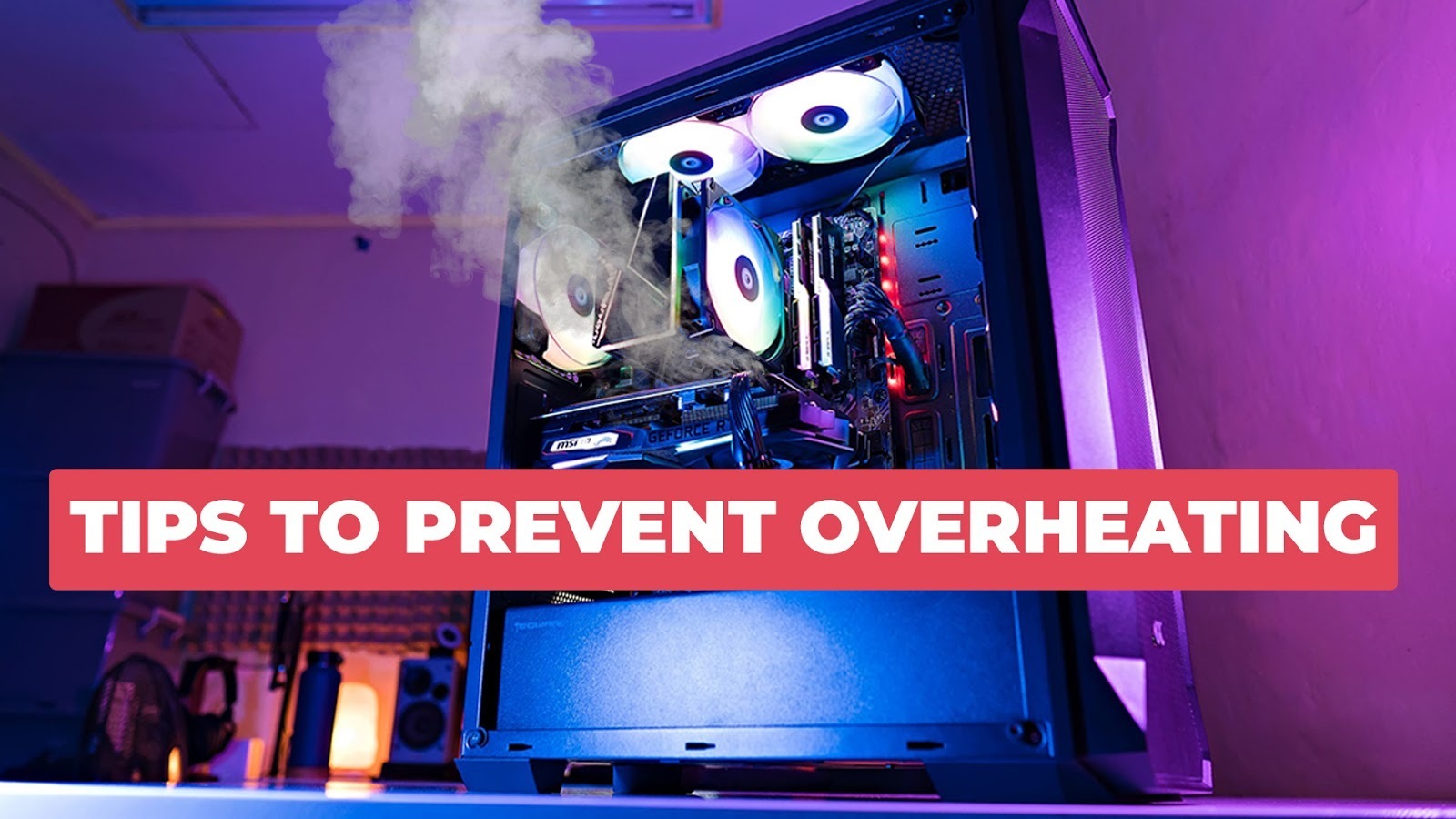
What Causes A Computer To Overheat?
Some of the answers to this question are specific to individual components, whereas other causes can affect your entire system. High temperatures shorten the lifespan of your components, so identifying the potential reasons for overheating is the best place to start.
Components in a computer produce heat, and this expelled heat can raise the internal temperatures inside your case. If you have been facing recent performance issues or the odd random shutdown, this could be down to a specific component facing cooling issues.
Let’s look at how individual components can affect the heat inside your system and then move on to the main threat to anyone’s PC. In this article, we will cover what the leading causes of an overheating computer can be, how to keep track of the temperatures of your components, and ultimately show you how to tackle these problems head-on.
How PC keeps itself cool to prevent computer overheating
All PC cooling systems, whether they are desktop or laptop computers, dissipate heat out of the computer’s case with the help of several PC fans. These computer fans are the central computer system cooling parts.
In case hot air is not removed correctly, the computer overheating problem can get so severe that it can cause damage to your PC. Therefore, it’s advisable to monitor PC temperature regularly, although keeping your computer cool should be a top priority.
How To Prevent Your Computer From Overheating
Pro Tip: Three preventive measures that you should take to prevent your computer from overheating are cleaning, improving airflow, and stopping overclocking.
Our top 5 tips to keep your computer from overheating:
1. Always Keep Your PC Away from the Windows or Vents
Make sure that your system is not placed near any window or vent because it can lead your PC to turn warm. Your PC, if it is located near a vent or window from where the warm air comes, can get your PC ruined. Hence, the PC should be kept away from the temperature-sensitive area. Therefore, if you frequently change the location of your PC, it will remain cool.
2. Provide a Breathing Room to your System
Check the positioning of your computer. Look around your computer and see if there isn’t any object which is obstructing the airflow. If you find so, then immediately remove the stuff and let the air pass to the computer so that it remains cool. Also, check your computer desk, and you find that certain things are obstructing the path or are placed on it to remove all the stuff which is prohibiting air from passing.
3. Close Your System’s Case
Some people think that if they keep open the case of the system, their system will get cool, but it is not so. The closed system’s case does that effectively. The fans of the system do not get accumulated by the dust and work in good condition, but the open case may result in the dust getting accumulated on the fan, ruining its working.
4. Clean your Fans
Frequent cleaning of fans leads to proper working and condition of the fan, which would help in cooling of the computer. Therefore, power down your PC and use a canned duster or cleaner, and carefully clean the fans of the computer. Avoid vacuums because it damages the computer more than that of heat.
5. Check Your System’s Power Supply Fan
PC does possess the power supply fan integrated, but if you do not own a case fan, then ultimately you are only left with a power supply fan, and if it stops working, then your system would generate more heat, and it is more prone to get damaged.
After reading these solutions, you can quickly answer how to cool your PC and stop your PC from overheating. Did you like these methods to prevent computer overheating?